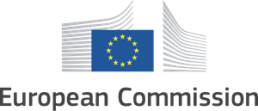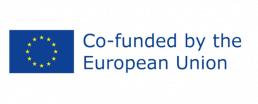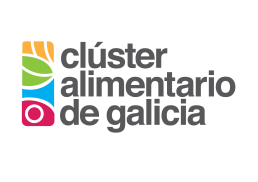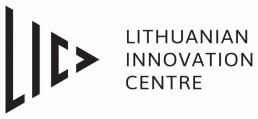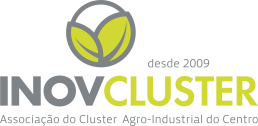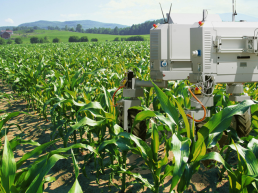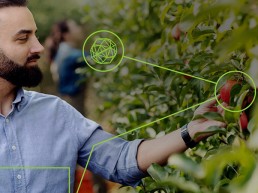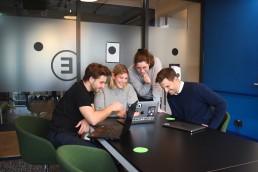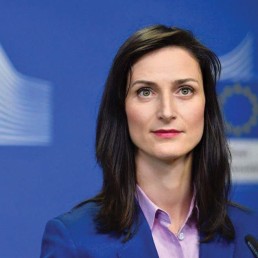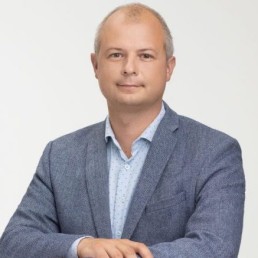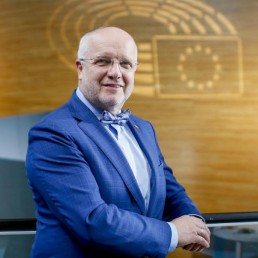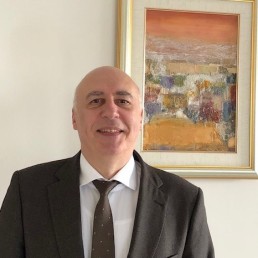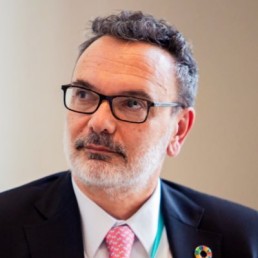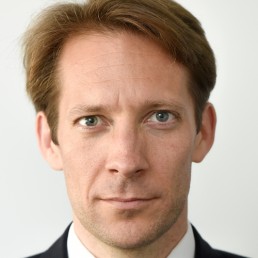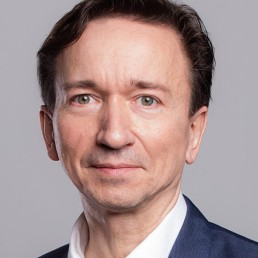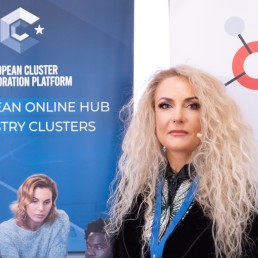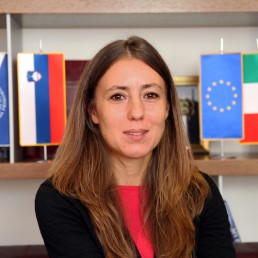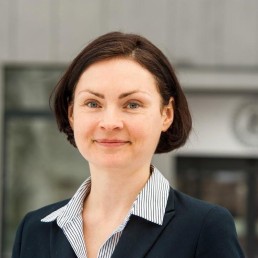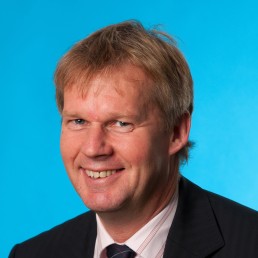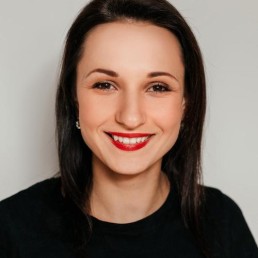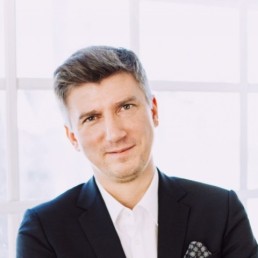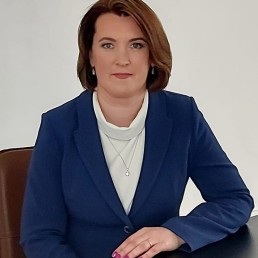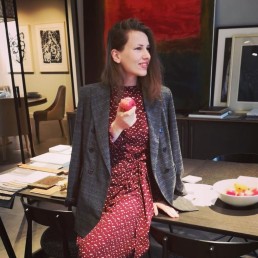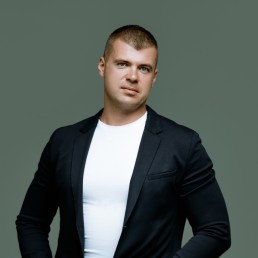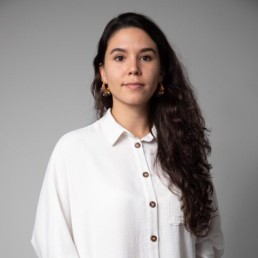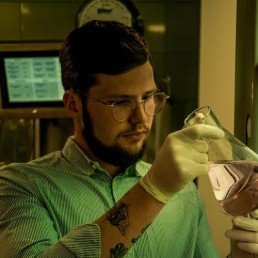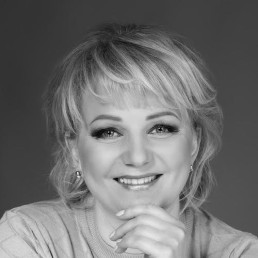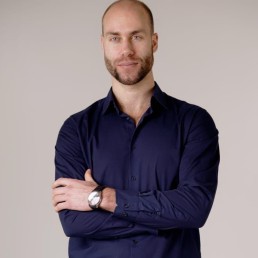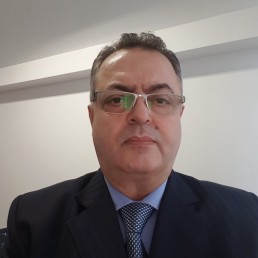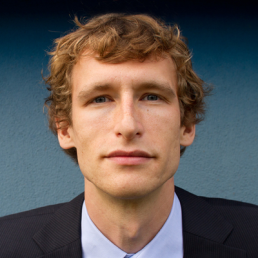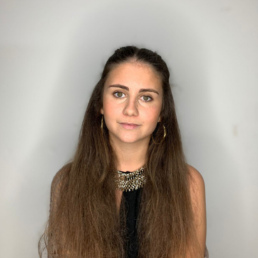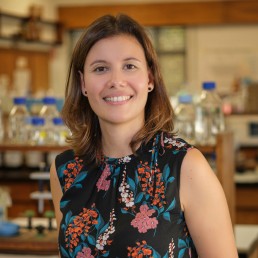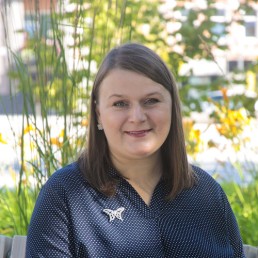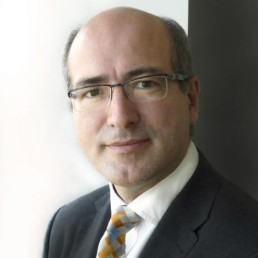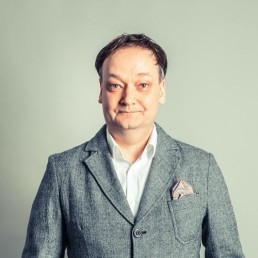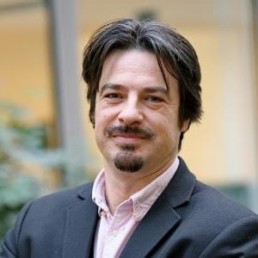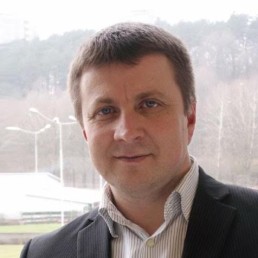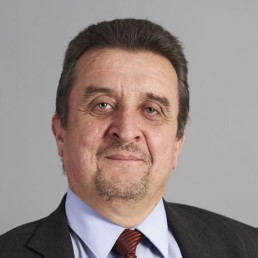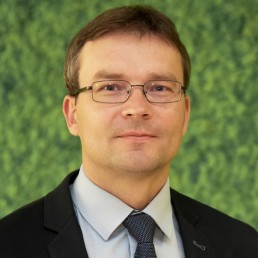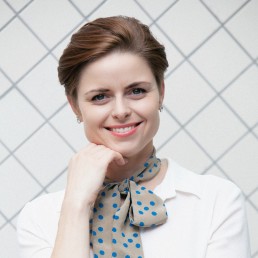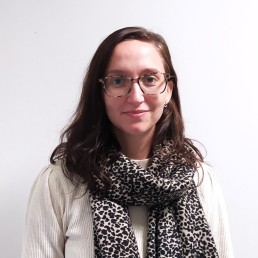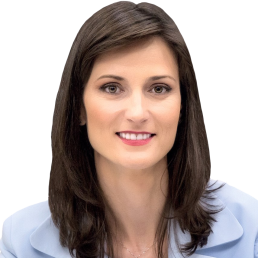
Patron of the HACK Startup Village'22
Mariya Gabriel
European Commissioner for or Innovation, Research, Culture, Education and Youth.

HACK Startup Village is patroned by the European Commissioner for Innovation, Research, Culture, Education and Youth.
Dear Minister Šiugždinienė,
Dear Minister Gentvilas,
Dear friends of the Startup Village initiative,It is an absolute pleasure to be here at the EU Hack Startup Village’22!
Let me begin by expressing my gratitude to AgriFood Lithuania for organising this hackathon. In particular, I want to emphasise Kristina Sermuknyte- Alesiuniene’s drive in advancing the Startup Village initiative at the European level.
The Startup Village initiative holds a lot of promise. Promise to unleash the potential of rural areas by creating innovation ecosystems in rural areas. Promise to promote innovation in a more inclusive way. Promise to empower even more European innovation ecosystems, and tackle the challenges of the green transition and the new deep-tech innovation wave.
Startup Village approach is not a paternalistic approach. On the contrary, as our societies adapt to the global challenges we face, we find more and more opportunities for our rural areas.
The Startup Village initiative is founded on the optimistic premise that rural areas can become economic growth engines. Two weeks ago, during my mission to Silicon Valley, I reaffirmed this belief. Silicon Valley is a living example of the innovation and startup potential of rural areas.
Silicon Valley is a nearly 100-kilometer-long, rural region. It does not contain any major urban centres. Despite being a rural region, this valley is the origin of the digital revolution. As a rural area, it was inexpensive to acquire land for the new structures. And as a rural area, the valley offered a high quality of life to its residents. Likewise, as a rural area, it was possible to network and mingle with like-minded individuals while also having ample room for personal development.
Similarly, innovators and entrepreneurs will play a key role in the implementation of the Startup Village initiative all across rural areas in Europe. Especially young businesses and startups with ambitions to innovate and grow.
Start-ups and scale-ups are real job engines. And here, EU performance is significantly improving. In fact, in 2021, the EU attained the worldwide lead in terms of emerging ecosystems, accounting for 37% of global emerging startup ecosystems.
We have the capacity to boost this trend. But we cannot do so only where startups are already concentrated, in a few metropolitan areas. We need to change the model to make it more sustainable. We need to build capacity in rural areas and develop their innovation potential. Because diffused innovation ecosystems are at the heart of cohesion.
Strong innovation ecosystems can help rural communities thrive by bringing together public and private actors. Likewise,
they can assist Europe in mobilising talents and creative minds located outside of key urban knowledge hubs. And the startup village initiative plays a fundamental role here.
So, how is the EU supporting startup villages, and innovation ecosystem development in rural areas?
First, through targeted support, and second, through pooling resources and working together – and today’s hackathon is a great example of that.
First, let me address targeted support.
The New European Innovation Agenda has a specific flagship dedicated to supporting innovation ecosystems across the EU, including startup villages, reinforcing the innovation cohesion. It focuses on creating the basis for the emergence of connected regional innovation valleys across the EU, notably involving regions with a lower innovation performance.
In addition, Horizon Europe’s Workprogramme 2023-24 includes specific calls related to startup villages in the area of bioeconomy, and also in the European Innovation Ecosystems Programme. Likewise, the European Institute of Innovation and Technology will include support to Startup Village initiative in their workprogramme for 2023.
Let me emphasise the importance of seeking synergies and cooperating with other existing actions. Take, for example, CAP rural networks, including the European Innovation Partnership on agriculture productivity and sustainability, Horizon Europe Partnership on Sustainable Food Systems, the Circular Bio-based Europe Partnership, or the opportunities and solutions created under the EIT’s Knowledge and Innovation Communities.
These initiatives cover the agri-food sector quite well. But there is another sector that I believe will equally empower our rural areas: deep-tech areas. This is the 4th innovation wave, after the digital revolution—and it is a wave our innovators will surf. We just need to make sure we have enough surfboards on hand, also in rural areas.
Which is why the New European Innovation Agenda has another flagship, run through the European Institute of Innovation and Technology, or EIT, aimed at training 1 million talents in deep tech areas by 2025 across all Member States.
Deep tech solutions are very important in agri-food technologies. For example, the use of sensors, GPS technology, machines or robotic systems for precision agriculture, as well as molecular biology or synthetic Biology technologies for food processing.
Here I would like to announce that we will include a specific challenge in the European Innovation Council
Workprogramme 2023 to support startups in precision agriculture. And I hope that many of the beneficiaries will come from rural areas.
As you see, we have a lot of resources and programme backing the Startup village initiative.
Which brings me to my second point: pooling these resources and working together. This is where our Long-Term Vision for the EU’s Rural Areas, launched by the European Commission in 2021, comes in.
The annual Startup Village Forum is part of the Innovation for rural areas flagship. Our intention is to promote knowledge
exchange and cooperation activities, working as an open and inclusive space where institutions and stakeholders can meet, discuss and shape actions for startup-driven innovation in rural areas.
Besides, the Forum aims to channel the commitment of public and private organisations to support Startup Villages. In fact, we launched a call for pledges offering financial but also in kind support, such as the provision of co-working spaces, IT infrastructure or expertise, coaching, mentoring or training, strengthening start-ups and supporting job opportunities in rural areas.
And we’ve seen a lot of interest, from both public, mobilising cohesion funds and Recovery and Resilient Funds, and private entities. Some of them have already finalised their pledges and
more are on the way. In fact, eleven villages are already benefiting from the support offered by private entities under this call for pledges.
Over the past months, we have continued to actively explore these themes, including how different actors can contribute to their development.
And now it’s the moment to focus on implementation.
And you know me, I like out-of-the-box thinking: innovative ways for the implementation of EU initiatives.
Today, I would like to invite all stakeholders attending this hackathon to establish a Startup Village Alliance as an informal partnership to focus on implementation. And I would be deighted to announce the Alliance publicly at the next Startup Village Forum that will take place on 28 February, in Brussels.
And this will also be an opportunity to present the results of Horizon funded projects on rural innovation, together with concrete stakeholder experiences from other European, national or regional programmes.
Dear friends,
We have the resources. And we have the community to develop them into concrete ventures.
All of you, through initiatives like this amazing hackathon have an opportunity in front of you. You have a chance to significantly contribute to bridging all our regions and localities, through great ideas, and even greater execution, from the drawing board to the market, together.
I therefore wish the organisers and the participating teams all the success over the next two days, as they co-create the future. I will be very interested to see the results of this hackathon, and the solutions developed, which could then be helpful and feed into our policies and supporting measures.
I also invite you and the participating teams to actively join us at the forthcoming Startup Village Forum held on 28 February in Brussels.
In the meantime, remember. As Albert Einstein said, creativity is contagious. Pass it on! That is why we are all here, together. Have a great couple of days!
Thank you.
About HACK Startup Village’22
Depopulation, uncompetitive economy, brain drain, lack of infrastructure, low income levels, limited access to services, environmental and social issues are buzzwords often used while describing rural regions. Is this how we are going to see rural regions forever? The Startup Village concept initiated by the European Commission suggests a new, different approach. However, the main question is how rural areas can become a center of attraction for startups?
During this hackathon, you will have to create a vision for selected rural or intermediate region* in your country. How could this area become the best place to live, work, dream and create?
* Areas covered by concepts of rural and intermediate regions from urban-rural typology are described by the European Commission. You can find the full interactive map by clicking this link.
You can also choose one of the challenges of the AgriFood sector, which will be presented by industry companies from all over Europe. Smart solutions to the challenges of the agrifood sector are one of the ways to create a high value-added economy in rural areas. After all, it is the most labor-intensive sector in the regions, which has huge potential for digital and robotics solutions.
Why is it worth to participate?
- You will have a chance to win a cash prize.
- You will pitch your ideas to investors, representatives of European and Lithuanian authorities and business leaders across Europe. It is your chance to sell your idea to a business enterprise or government authority.
- The best performing teams will be invited to pitch their ideas in one of the flagship forums organized by the European Commission - Startup Village Forum.
- During the mentoring sessions, you will gain valuable experience and learn from professionals.
- Information about the hackathon will reach at least 1 million people.
- You will make new connections with other innovators from business, academia, industry and other fields.
- You will be visible to a wide network of international partners of the European Commission, EIT Food and AgriFood Lithuania DIH across Europe.

Challenges groups
Mario Milouchev
Andras Inotai
Evelyn Reinmuth
Liene Briede
Deimantė Žilinskienė
Nikolaj Ambrusevič
Akram Shhaideh
Dr. Artūras Jakubavičius
Awards
Two Winners of Challenge of Vision for the Startup Village
From Zero to Hero (Challenge of the AgriFood Sector)
The Most Advanced Solution (Challenge of the AgriFood Sector)
Prizes from Special Partners
Prize Fund
8 000 €
Agenda
October 20th (CET)Pre-Event
18:00 Introduction to the HACK Startup Village’22 | Format: Q&A
October 21th (CET)
Opening of the HACK Startup Village
15:00 Welcome speech: Mariya Gabriel, European Commissioner for Innovation, Research, Culture, Education and Youth
15:07 Welcome speech: Jurgita Šiugždinienė, Minister of Education, Science and Sport of Lithuania
15:10 Roundtable discussion: “How to support rural areas to become rural innovation ecosystems'”.
- Mariya Gabriel, European Commissioner for Innovation, Research, Culture, Education and Youth
- Simonas Gentvilas, Minister of Environment of Lithuania
- Juozas Olekas, Member of the European Parliament
- Moderator – Kristina Šermukšnytė-Alešiūnienė (Director of AgriFood Lithuania/European Cluster Manager of the Year)
15:30 Roundtable discussion: “How does the Commission support innovation in rural areas – Startup Villages”
- Mario Milouchev, Director of Directorate D “CAP Strategic Plans II” in DG Agriculture and Rural Development of the European Commission
- Alessandro Rainoldi, Head of Unit B.3 Territorial Development at JRC (European Commission)
- Dr. Andy Zynga, CEO at EIT Food
- Andras Inotai, the head of the innovation unit in DG R&I (European Commission)
- Moderator – Kristina Šermukšnytė-Alešiūnienė (Director of AgriFood Lithuania/European Cluster Manager of the Year)
16:15 “How can universities support rural areas to become startup villages”
- Evelyn Reinmuth the coordinator of the Hub of European University alliance for Startup Village (44 universities)
- Klavdija Kutnar, Rector of the University of Primorska
- Julija Kiršienė, Vice-Rector for Research at Vytautas Magnus University
- Liene Briede, Director of the Science and Innovation Center of Riga Technical University (RTU), board member at European Innovation Council (EIC) & Latvian Startup Association
- George Beers, Coordinator at SmartAgriHubs, Wageningen University & Research
- Moderator – Kristina Šermukšnytė-Alešiūnienė (Director of AgriFood Lithuania/European Cluster Manager of the Year)
17:00 Presentation: “Story of success”
Vanessa Tierney | CEO at Abodoo
17:15 Overview of the challenges
17:30 Check point #1
18:00 End of the official opening day of the HACK Startup Village
October 22th (CET)
09:00 Check point #2
09:30 Mentoring sessions
13:00 Workshop: “Startups Ecosystem and possibilities”
Ieva Šūmakarytė | Events and Pre-accelerator Manager at Startup Lithuania
14:00 Mentoring sessions
16:00 Workshop: „Team Collapse. Five reasons why it happens“
Andrius Janiukštis | Founder & Co-owner of Academia Dominorum
18:00 Check point #3
October 23th (CET)
09:00 Check point #4
09:30 Workshop: “How to impress the jury during the final pitch“
Grigoris Chatzikostas | Vice President of Business Development at FoodScale Hub
10:00 Mentoring sessions
16:00 Video submission deadline
16:30 Pitch round with recorded videos & live Q&A
18:30 Awards & closing
Register now!
000 d. 00 h. 00 m. 00 s.


